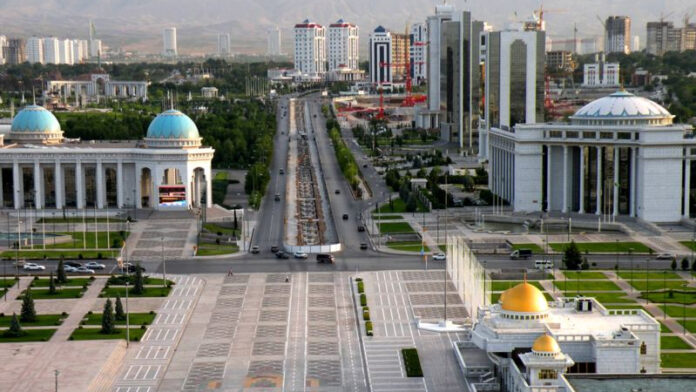ASHGABAT: Turkmenistan on Thursday introduced an initiative to abolish its Upper House of Parliament and create a supreme body, a move that would strengthen the role of the former leader of the gas-rich authoritarian country.
The tightly-controlled ex-Soviet country tolerates no political opposition or free press, with its economy largely de-pending on natural gas exports, especially to China.
For nearly two decades the country has been ruled by one family since the coming to power of Gurbanguly Berdymu-khamedov in 2006, who was replaced by his son Serdar last year in a presidential election with token opposition.
The 65-year-old former leader — also called Arkadag or “Protector” — has kept a hand on the reins, retaining his posi-tion as chairman of the upper house of parliament.
Observers say Berdymukhamedov senior remains the real holder of power and has met with several foreign leaders since stepping down, including with Russian President Vladimir Putin last year.
“I propose to create a supreme representative body of people’s power, the Halk Maslahaty (“People’s Council”) of Turkmenistan,” Berdymukhamedov said in remarks reported Thursday by the state-run newspaper Neutral Turkmeni-stan.
According to him, the new institution will in particular “consider and approve the main directions of domestic and for-eign policy”.
He said that “due to the establishment of the People’s Council of Turkmenistan and it receiving broad powers”, the upper house of parliament “will be abolished”.
The ex-president appeared first on a list of members who he believes should join the People’s Council, ahead of his 41-year-old son.
The two chambers of parliament will meet on January 21 and are expected to ratify the proposal.
The People’s Council existed under independent Turkmenistan’s founding leader Saparmurat Niyazov, who ruled until his death in 2006.
Berdymukhamedov, his successor, abolished the body in 2008 taking over a large part of its functions.
During his time in office, Berdymukhamedov has established a strong cult of personality. In late December, a city under construction in the south of the country — costing some $1.5 billion according to state media, was named Arkadag in honour of the former leader.
US-based democracy research group Freedom House regularly places the gas-rich country alongside North Korea as one of the most politically closed countries in the world, with little known about how the regime makes day-to-day decisions.
A near-total control of information in the country has meant even the most obvious shortcomings of the state cannot be discussed publicly. Reporters Without Borders ranked in 2019 Turkmenistan as the most dangerous country in the world for journalists to do their job.
Chronic mismanagement has meant that, despite having some of the largest natural gas reserves in the world, the country’s estimated five million residents face rampant inflation and a faltering economy.




